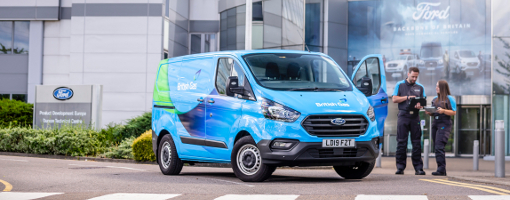Jaguar Land Rover (JLR) will build its new range of electrified cars in the UK, safeguarding thousands of jobs, with the new fully electric XJ slated as the first product.
The new vehicles will be made at the Castle Bromwich plant, with Prof Dr Ralf Speth, CEO of JLR, saying: “The future of mobility is electric and, as a visionary British company, we are committed to making our next generation of zero-emission vehicles in the UK. We are co-locating our electric vehicle manufacture, Electronic Drive Units and battery assembly to create a powerhouse of electrification in the Midlands.
“Affordability will only be achieved if we make batteries here in the UK, close to vehicle production, to avoid the cost and safety risk of importing from abroad. The UK has the raw materials, scientific research in our universities and an existing supplier base to put the UK at the leading edge of mobility and job creation.” He added.
The car to be produced will be Jaguar’s flagship XJ, and the news was released as production of the current XJ came to an end. The decision marks the next stage in the execution of Jaguar Land Rover’s electrification strategy. In January the company confirmed plans to bring battery and Electric Drive Unit (EDU) assembly to the Midlands with investment in new and existing facilities. These investments have been anticipated in the company’s previously communicated capital investment plans.
The new Battery Assembly Centre at Hams Hall, operational in 2020, will be the most innovative and technologically advanced in the UK with an installed capacity of 150,000 units. Together with the Wolverhampton Engine Manufacturing Centre (EMC), home of Jaguar Land Rover’s global EDU production, these facilities will power the next generation of Jaguar and Land Rover models.
JLR also called on the Government and industry to work together to bring giga-scale battery production to the country, building on the UK Battery Industrialisation Centre and the Government’s Faraday Challenge. These critical steps will also support and grow the existing supply chain, making the UK less dependent on essential materials sourced abroad today.
Latest News
-
Private health provider awards £10,000 to arthritis research team
-
Building Society hands out £1m to tackle inequality
-
Premier League and Comic Relief partnership aims to improve children’s mental health
-
Russell Hobbs launches food poverty campaign in schools
-
Tottenham Hotspur and charities launch film to tackle mental health stigma
-
Cardfactory funds homelessness charity’s team of psychologists
© 2019 Perspective Publishing Privacy & Cookies







Recent Stories